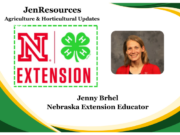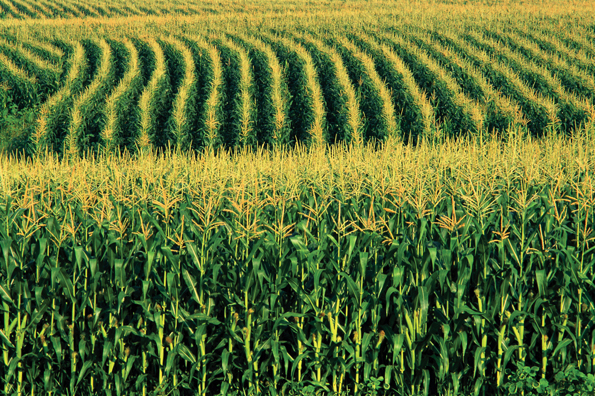UPCOMING EVENTS: Â
Oct. 26-27:  Managing Impacts to Water Quality in Production Agriculture, Nebraska Innovation Campus, http://go.unl.edu/zqb7Â
Oct. 28: From Recipe to Reality, UNL Food Processing Center, RSVP: Jill Gifford at 402-472-2819 or jgifford1@unl.edu
Nov. 3: Produce Safety Alliance Compliance, Raising NE in Grand Island, https://events.unl.edu/acreage/2017/11/03/123489/
Nov. 4: Fall Hop Production Workshop, 8am-5pm, near Plattsmouth, NE https://agronomy.unl.edu/nebraska-hops
Nov. 6: So You Inherited a Farm, Now What? Hall County Extension, Grand Island 9:30 a.m. RSVP:  308-385-5088
Nov. 9: Forest Products Marketing Workshop, Kearney, NE, https://www.eventbrite.com/e/forest-products-marketing-workshop-tickets-38081724463
Nov. 13:  So You Inherited a Farm, Now What? 1:30 p.m., 4-H Bldg York, RSVP (402) 362-5508 or jrees2@unl.edu
Nov. 13: Estate Planning Meeting, 6:30 p.m., 4-H Bldg York, RSVP (402) 362-5508 orjrees2@unl.edu
Nov. 15: Sprayer Clinic for Dicamba/Enlist, NE College Tech Ag Curtis, 12:30 p.m., RSVP 308-696-6705 or rklein2@unl.edu
Nov. 16: Grain Marketing Seminar: Intro to Futures and Options, 9:30-3 p.m., former ARDC near Mead, RSVP (402) 261-7572
Nov. 16:Â York County Corn Grower Banquet
Nov. 19-21: Facing Challenges: Shaping the Future Water Conference, Holiday Inn Kearney, http://www.newra.net/nwra-nsia-joint-convention/
Nov. 21: Grain Marketing Seminar: Intro. to Futures and Options, 10 a.m.-3:30 p.m., Extension Office Holdrege, RSVP (308) 345-3390
Dec. 7: Farmers and Ranchers College: Dr. David Kohl, 1-4 p.m., Bruning Opera House, Bruning
Dec. 11: Grain Marketing Seminar: Intro to Futures and Options, 9:30 a.m.-3pm, Extension Office Beatrice, RSVP (402) 873-3166
Dec. 12: Grain Marketing Seminar: Intro to Futures and Options, 9:30 a.m.-3 p.m., 4-H Building York, RSVP (402) 362-5508
Jan. 10-11:Â York Ag Expo, Holthus Convention Center, York
Jan. 11:Â Crop Production Clinic, North Platte
Jan. 16:Â Crop Production Clinic, Norfolk
Jan. 18:Â Crop Production Clinic, Lincoln
Jan. 18-19:Â Hops Grower, Brewer Conference, Embassy Suites Downtown Omaha,http://www.growbrewnebraska.com/registration/
Jan. 24-25:Â Crop Management Conference, Kearney
Jan. 30-31:Â No-Till On the Plains Winter Conference, Wichita, KSÂ http://notill.org/
Feb. 7-9:Â Nebraska Ag Tech Assoc. (NeATA) Conference
Feb. 19:Â Nebraska On-Farm Research Network Update, former ARDC near Mead
Feb. 20:Â Nebraska On-Farm Research Network Update, Lifelong Learning Center Northeast Com. College, Norfolk
Feb. 21:Â Nebraska On-Farm Research Network Update, Hall Co. Extension Office, Grand Island
Feb. 22-23:Â Women in Ag Conference, Kearney
Farm Finance Clinic Sites and Dates To sign up for a clinic or to get more information, call Michelle at the Nebraska Farm Hotline at 1-800-464-0258.
It was good seeing combines going again and hopefully this coming week will greatly help with harvest!Â
Dicamba Update: Dicamba volatility was a problem this past year in Nebraska and I shared much about that throughout June and July. Regarding POTENTIAL considerations for next year, the following is what Extension Weed Specialists and I have discussed. First, much of the volatility started with corn applications. According to Monsanto’s research, they found that adding ammonium sulfate (AMS) to the soybean dicamba formulation increased volatility 10X; thus, the new soybean dicamba formulations didn’t allow the use of AMS with them. However, dicamba products used on corn can be used in conjunction with AMS and we speculate that aided in increased volatility this past year. Our Weed Specialists are meeting with industry partners to discuss this for consideration of label changes for 2018. Second, we may see that dicamba can only be applied before a certain date of the year and even between certain times of the day (for example mid-morning to mid-afternoon). Hopefully, if a date is mandated, it will be at a time that we can still use this tool in our crops. Third, while this won’t work for non-irrigated fields, irrigating after rain-fast or label-specified time may be encouraged to help reduce volatility. Fourth, we may see changes regarding weather conditions for applying dicamba products. Fifth, we may see the use of smoke bombs or other tools used more to help with anticipating temperature inversion situations. Beyond sharing in pesticide training, I plan to have dicamba and palmer amaranth update meetings this winter and will share more once I get them scheduled.
What we know thus far is what was released in the following statement from the Environmental Protection Agency (EPA). When we see the word ‘drift’, what we mostly saw this past year was actually ‘volatility’. “EPA has reached an agreement with Monsanto, BASF and DuPont on measures to further minimize the potential for drift to damage neighboring crops from the use of dicamba formulations used to control weeds in genetically modified cotton and soybeans. Manufacturers have voluntarily agreed to label changes that impose additional requirements for “over the top” use of these products next year including: Classifying products as “restricted use,” permitting only certified applicators with special training, and those under their supervision, to apply them; dicamba-specific training for all certified applicators to reinforce proper use; Requiring farmers to maintain specific records regarding the use of these products to improve compliance with label restrictions; Limiting applications to when maximum wind speeds are below 10 mph (from 15 mph) to reduce potential spray drift; Reducing the times during the day when applications can occur; Including tank clean-out language to prevent cross contamination; and Enhancing susceptible crop language and record keeping with sensitive crop registries to increase awareness of risk to especially sensitive crops nearby.
Manufacturers have agreed to a process to get the revised labels into the hands of farmers in time for the 2018 use season. EPA will monitor the success of these changes to help inform our decision whether to allow the continued “over the top” use of dicamba beyond the 2018 growing season. When EPA registered these products, it set the registrations to expire in two years to allow EPA to change the registration, if necessary. For more information: https://www.epa.gov/ingredients-used-pesticide-products/registration-dicamba-use-genetically-engineered-crops.â€
If you’re interested in learning more about proper spraying techniques for dicamba and 2,4-D products, on November 15, there will be a sprayer clinic at the College of Technical Ag in Curtis. The clinic begins at 12:30 p.m. with the first part of the clinic held in the Nebraska Ag Industry Education Center, where spraying the new dicamba formulation and new Enlist Duo and Enlist One will be discussed. At 1:30 p.m. participants will move to the Livestock Teaching Center, where a variety of sprayers will be displayed and technicians will be available to discuss the features of each sprayer. For more information on the sprayer clinic, contact Robert Klein, Nebraska Extension western Nebraska crops specialist, at 308-696-6705, rklein2@unl.edu, or Brad Ramsdale, associate professor of agronomy at the Nebraska College of Technical Agriculture in Curtis at 308-367-5225, bramsdale2@unl.edu. CCA credits are available for participating in the clinic.
Workshop: So You’ve Inherited a Farm, Now What? and Cash Rent Information: Anyone that owns farmland may want to participate in this seminar to be provided information and education about that ownership. It will be held on November 13 from 1:30-3:30 p.m. at the 4-H Building in York. Participants can use this 2 ½ hour workshop to learn about: Am I keeping the farm, or selling it? How do I manage a farm? If leasing, what are key lease provisions? What legal considerations do I have with this decision? And, how do we manage family communications and expectations when other family is involved? This workshop will also share updated cash rent numbers and considerations.Â
Pre-registration is requested by November 12. Advance registration is requested to ensure enough handouts for the program. This program is offered free and open to the public with funding provided by the North Central Extension Risk Management Education Center and USDA National Institute of Food and Agriculture under award number 2015-49200-24226. Please RSVP by calling (402) 362-5508 or emailing Jenny at jrees2@unl.edu.
Workshop: Estate Planning:  Persons of all ages are invited to attend a “Farm and Ranch Estate Planning Discussion†hosted by UNL Extension. This workshop will held on November 13th from 6:30-8:30 p.m. at the 4-H Building in York. Cost to attend is free, but please register by November 12th to (402) 362-5508 or jrees2@unl.edu to ensure that there are enough handouts.
The presentation will focus on the decisions and situations which should be addressed when thinking about how your farm or ranch estate will be passed. Topics will include: the need for planning, proper family communications, who makes the decisions, concept of fair versus equal, preparing to meet with an attorney, and much more. The presentation is designed to give some basic information to those that haven’t yet started to think about their succession or transition plan for their assets.
Allan Vyhnalek, UNL Extension Educator for Farm Succession will be the presenter. He was just assigned to the Ag Economics Department to work on farm and ranch succession and transition.Â


































